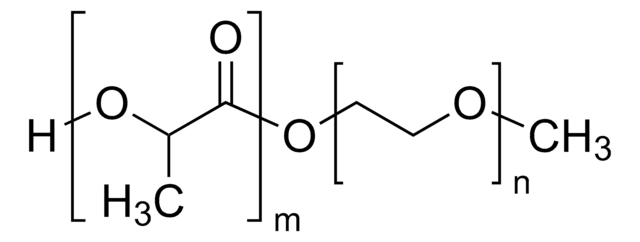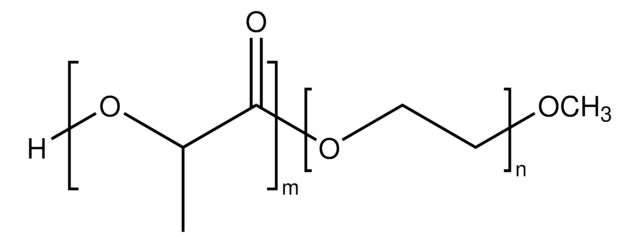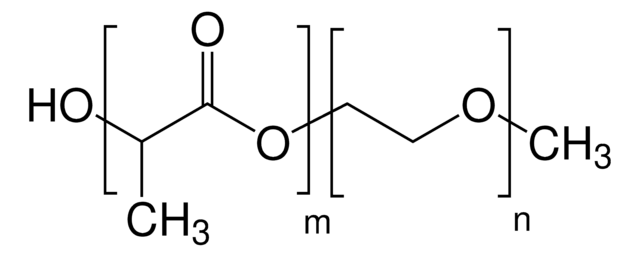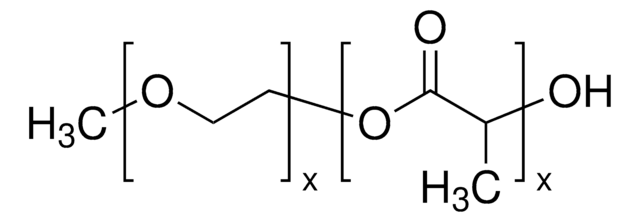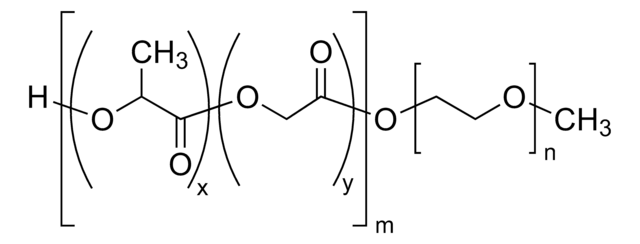764736
Poly(ethylene glycol) methyl ether-block-poly(D,L lactide)-block-decane
PEG average Mn 2,000, PDLLA average Mn 2,000
Sinónimos:
PEG-PDLLA-decane, PEG-b-PLA-b-decane, PEG-PLA
About This Item
Productos recomendados
form
pellets
Quality Level
mol wt
PDLLA average Mn 2,000
PEG average Mn 2,000
average Mn 4,000 (total)
degradation timeframe
2-5 weeks
transition temp
Tm 29-33 °C
PDI
<1.1 (typical PEG)
<1.2
<1.3 (overall)
storage temp.
2-8°C
Categorías relacionadas
General description
Application
Features and Benefits
- Good biocompatibility, low immunogenicity and good degradability.
- Properties can be easily modulated by changing the block copolymer segment sizes to suit a particular application.
Storage Class
11 - Combustible Solids
wgk_germany
WGK 3
flash_point_f
>230.0 °F
flash_point_c
> 110 °C
Elija entre una de las versiones más recientes:
Certificados de análisis (COA)
¿No ve la versión correcta?
Si necesita una versión concreta, puede buscar un certificado específico por el número de lote.
¿Ya tiene este producto?
Encuentre la documentación para los productos que ha comprado recientemente en la Biblioteca de documentos.
Los clientes también vieron
Artículos
Local delivery of bioactive molecules using an implantable device can decrease the amount of drug dose required as well as non-target site toxicities compared to oral or systemic drug administration.
Microparticle drug delivery systems have been extensively researched and applied to a wide variety of pharmaceutical and medical applications due to a number of advantages including injectability, local applicability to target tissues and sites, and controlled drug delivery over a given time period.
Aliphatic polyesters such as polylactide, poly(lactide-co-glycolide) and polycaprolactone, as well as their copolymers, represent a diverse family of synthetic biodegradable polymers that have been widely explored for medical uses and are commercially available.
The development of drugs that target specific locations within the human body remains one of the greatest challenges in biomedicine today.
Nuestro equipo de científicos tiene experiencia en todas las áreas de investigación: Ciencias de la vida, Ciencia de los materiales, Síntesis química, Cromatografía, Analítica y muchas otras.
Póngase en contacto con el Servicio técnico